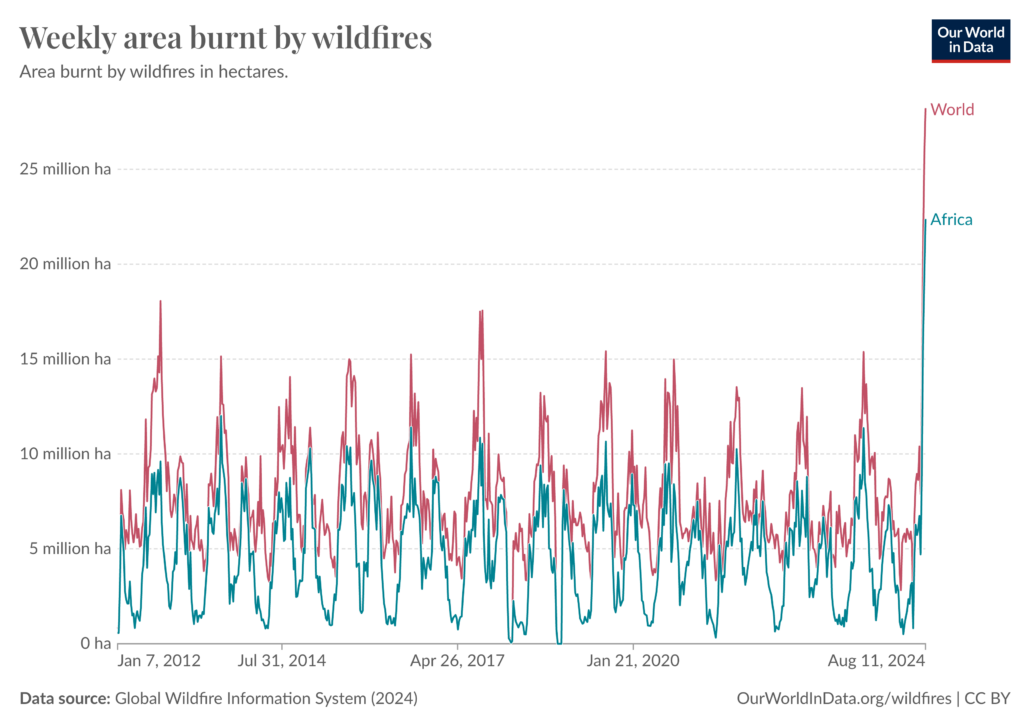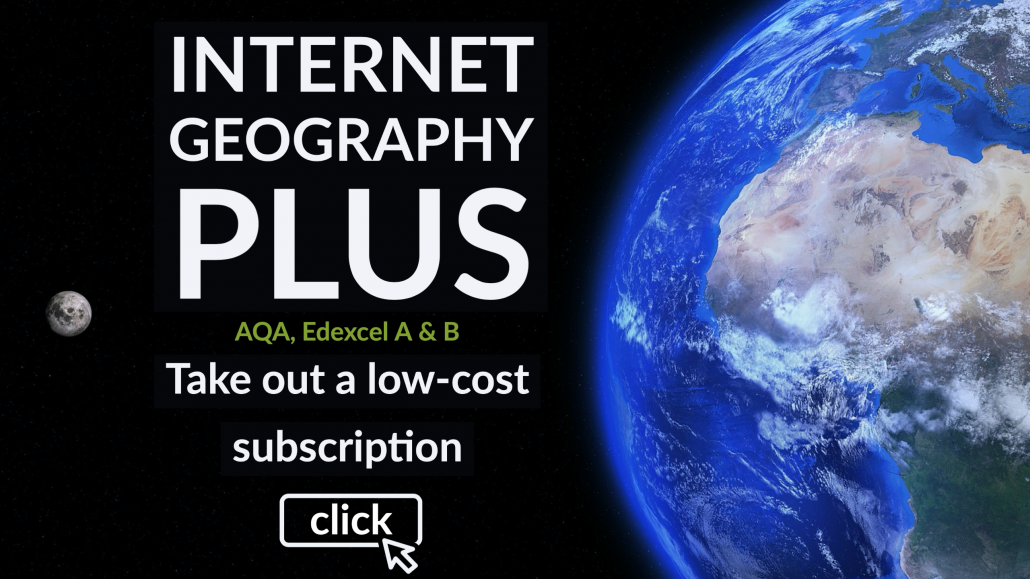In recent months, wildfires have surged globally, burning through larger areas and creating more widespread impacts than ever before. These fires have been particularly devastating in regions like Africa, Southern Europe, and North America. But what is behind the rise in wildfires, and how are people and governments responding to this crisis?
What’s Causing the Recent Wildfires?
The increased frequency and intensity of wildfires can be attributed to a few key factors:
- Climate Change: Rising global temperatures are making conditions hotter and drier in many regions, increasing wildfires. Droughts have become more severe, and areas with dry vegetation—such as forests and grasslands—become more vulnerable to fire. This has been evident in places like California, Greece, and Africa, where wildfires have burned out of control.
- Natural Causes: Natural events like lightning strikes, which ignite dry vegetation, can also trigger wildfires. This has been a common cause of fires in Africa and other regions prone to thunderstorms.
- Human Activity: Unfortunately, many wildfires are started by human activity, whether through accidents like unattended campfires or discarded cigarettes, or intentional acts of arson.
The 2024 Wildfire Crisis
In August 2024, wildfires reached alarming levels globally. During one week, the global burn area was 64% higher than any other recorded week since 2012. A large portion of this increase came from severe wildfires in Africa, where around 22 million hectares burned. This was particularly devastating in Angola and the Democratic Republic of Congo, where large areas of land were scorched.
The weekly area burnt by wildfires. Source: https://ourworldindata.org/data-insights
Did you know?
In August 2024, smoke from wildfires in North America turned the skies over the UK a vivid red and made the moon appear orange due to particles scattering the light, creating an eerie and unforgettable scene
Impacts of Wildfires
The impacts of wildfires extend far beyond the areas they burn, affecting the environment, human health, and economies:
- Environmental Destruction: Wildfires can destroy entire forests, home to countless animal and plant species. They also release huge amounts of carbon dioxide, contributing to climate change and making future wildfires even more likely.
- Air Quality and Health: Smoke from wildfires can travel great distances, polluting the air and making breathing dangerous. In August 2024, smoke from wildfires in North America travelled across the Atlantic, affecting air quality in the UK. People in the UK noticed unusually red skies and an orange-tinted moon caused by smoke particles scattering the light from the sun and moon.
- Economic Damage: The destruction of homes, businesses, and infrastructure leads to huge financial costs for affected areas. Firefighting efforts and rebuilding damaged communities are also expensive, placing a heavy burden on governments.
How Are Countries Responding?
Countries are increasingly working together to combat wildfires, recognizing that no nation can handle these crises alone:
- International Cooperation: In 2024, the European Union activated the EU Civil Protection Mechanism to help Greece and Albania fight devastating wildfires. Countries like Italy, France, Czechia, and Sweden sent firefighting planes, helicopters, and ground teams to help contain the fires. This shows how international collaboration can be crucial in times of crisis.
- Technological Advancements: New technology, such as satellite monitoring, drones, and thermal imaging, is being used to detect and track wildfires. This allows for quicker responses and more effective firefighting efforts.
- Firebreaks and Preventative Measures: In many regions, authorities are creating firebreaks—gaps in vegetation that stop the spread of fires—and educating the public on fire prevention.
The rise in wildfires is a complex issue linked to climate change and human activity. As these fires grow in frequency and intensity, it’s essential that countries continue to collaborate and use new technology to prevent and fight them. With international cooperation, new firefighting techniques, and public awareness, we can hope to reduce the devastating impacts of wildfires on our planet.


